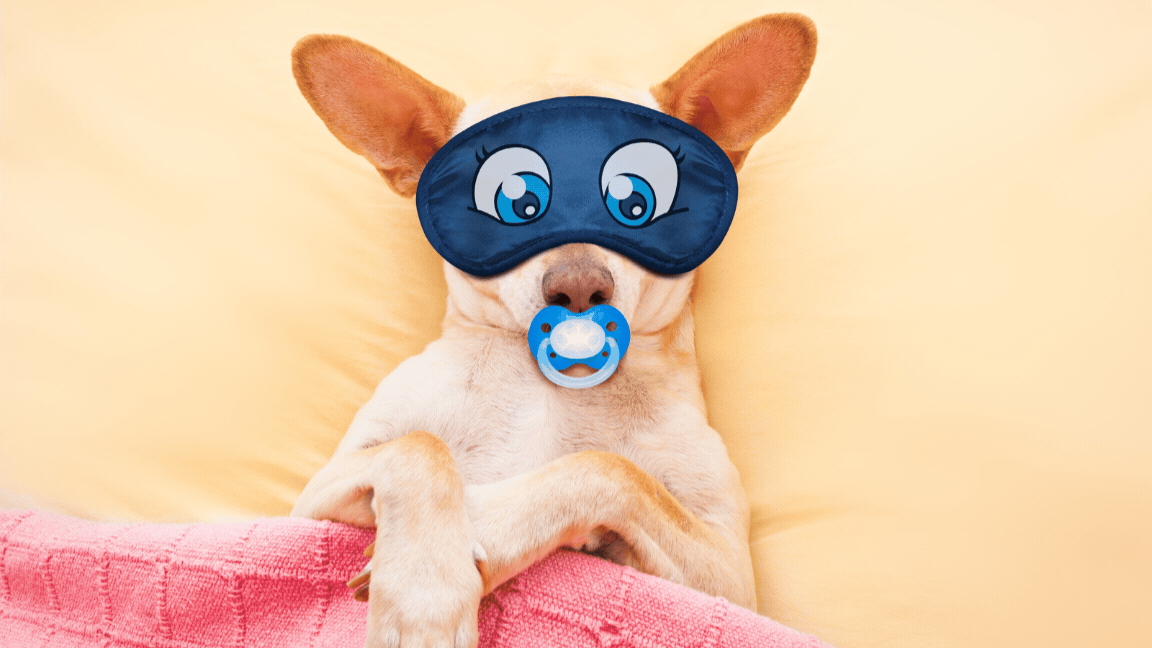Why Do Dogs Sleep With Their Eyes Open?

There’s something endearing about watching our dogs drift off into slumber. They curl up in cozy spots, sometimes sprawled out in the most amusing positions. As a dog owner, you might have noticed your pup sleeping with their eyes partially open. It can be a bit startling at first, and naturally, it raises the question: why do dogs sleep with their eyes open? Is that even safe? The way our dogs sleep can tell us a lot about their well-being and even their ancestry.
I remember the first time I saw my dog sleeping with her eyes open. At first, I thought she was awake and just resting, but then I noticed her eyes were not fully focused, and she seemed to be in a deep sleep. It got me curious, and I started to dig deeper into this quirky habit. It turns out, there’s quite a bit of understanding about why dogs sleep with their eyes open and what it means for their health and comfort.
Understanding Dog Sleep Patterns
Dogs, much like humans, go through different stages of sleep, including REM (rapid eye movement) and non-REM sleep. During the REM stage, their brain activity is high, and this is when they are likely to dream. You might have noticed your dog’s paws twitching or their whiskers moving during this time. Their eyes can appear partially open because their eyelids are not fully closed, revealing the third eyelid, or nictitating membrane, which helps keep their eyes moist and protected while they rest.
A Look at the Nictitating Membrane
The nictitating membrane is a translucent third eyelid that moves across the eye for protection and lubrication while maintaining visibility. It’s more prominent in some dog breeds than others. This feature is particularly useful for dogs that are bred for working in harsh environments where debris and dust could be a problem. When your dog is dozing lightly, you might see this membrane covering part of their eye, giving the impression that they are sleeping with their eyes open.
Evolutionary Traits and Survival Instincts
Historically, wild canines had to remain vigilant even while resting. Sleeping with their eyes partially open allowed them to stay alert to potential threats. This instinct hasn’t completely disappeared in our domesticated pets. Though they are far removed from the wild, some behaviors remain ingrained. It’s a fascinating glimpse into how evolution shapes behavior, even in our comfortable homes.
Medical Considerations
While seeing your dog sleep with their eyes open is usually normal, there are times when it can indicate health issues. Conditions like epilepsy or certain types of seizures can cause a dog to sleep with their eyes open. If you notice your dog’s eyes are open wide and fixed, or if they seem unresponsive, it could be a sign of a seizure. This requires immediate veterinary attention. Additionally, some dogs with certain eye conditions or those that have undergone eye surgery may exhibit this behavior more frequently.
Creating a Comfortable Sleep Environment
Have you ever watched your dog twitch or paddle their paws in their sleep? These movements are most often seen during REM sleep, which is when they dream. Dogs, like humans, process their day’s experiences during their dreams. The slight opening of their eyes might just be a part of this dreaming process, blending their dream world with a tiny glimpse of the reality around them.
To ensure your dog has restful sleep, providing a comfortable sleeping environment is essential. A quiet, safe place away from household activity can help them feel secure. Adequate physical and mental exercise throughout the day will also promote better sleep. Dogs that are well-exercised and mentally stimulated tend to sleep more soundly and for longer periods.
Your Pet’s Best Interest, Always
At Pet Institute, we take pet care seriously. We're dedicated to transparency, impartiality, and the well-being of your pets in every article, review, and recommendation we provide. Our unwavering commitment to these principles ensures that you, our valued reader, always receive reliable and unbiased information. Let us be your trusted guide in the world of pet care and companionship.